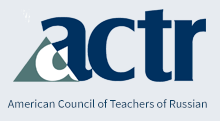Russian Language Journal
Keywords
Authoritarian discourse, propaganda, media literacy, Russian language
Abstract
The ability of students to recognize and interpret various forms of propagandist speech within the context of authoritarian discourse is crucial for effective information literacy education. This article emphasizes the need to introduce a specialized section within university courses on Russian cultural history for foreign students learning Russian. We propose naming this section “Russian Authoritarian Discourse: Features of Propaganda Language.” Focusing on the relationship between language and social structures and exploring the typology of linguistic situations shaped by social factors, the proposed section is grounded in a sociolinguistic approach. The article presents practical tools for analyzing real-life and immediately relevant content, specifically hidden propaganda within the contemporary language of the Russian state. These tools include: classroom examination of various definitions of propaganda from the early 20th to early 21st centuries; comprehensive linguistic, historical, and cultural commentary on the evolution of “revolutionary language”; identification of politically charged language elements and insights into the effectiveness of propaganda in modern Russia; analysis of poster language; exploration of ironic reinterpretation and recontextualization of propaganda products; and the use of contemporary Russian political graffiti memes as study materials.
Recommended Citation
Denisova, Yulia
(2023)
"Russian Authoritarian Discourse of the 20th and 21st Centuries as a Subject of Study in the University Classroom,"
Russian Language Journal: Vol. 73:
Iss.
2, Article 5.
DOI: https://doi.org/10.70163/0036-0252.1345
Available at:
https://scholarsarchive.byu.edu/rlj/vol73/iss2/5

